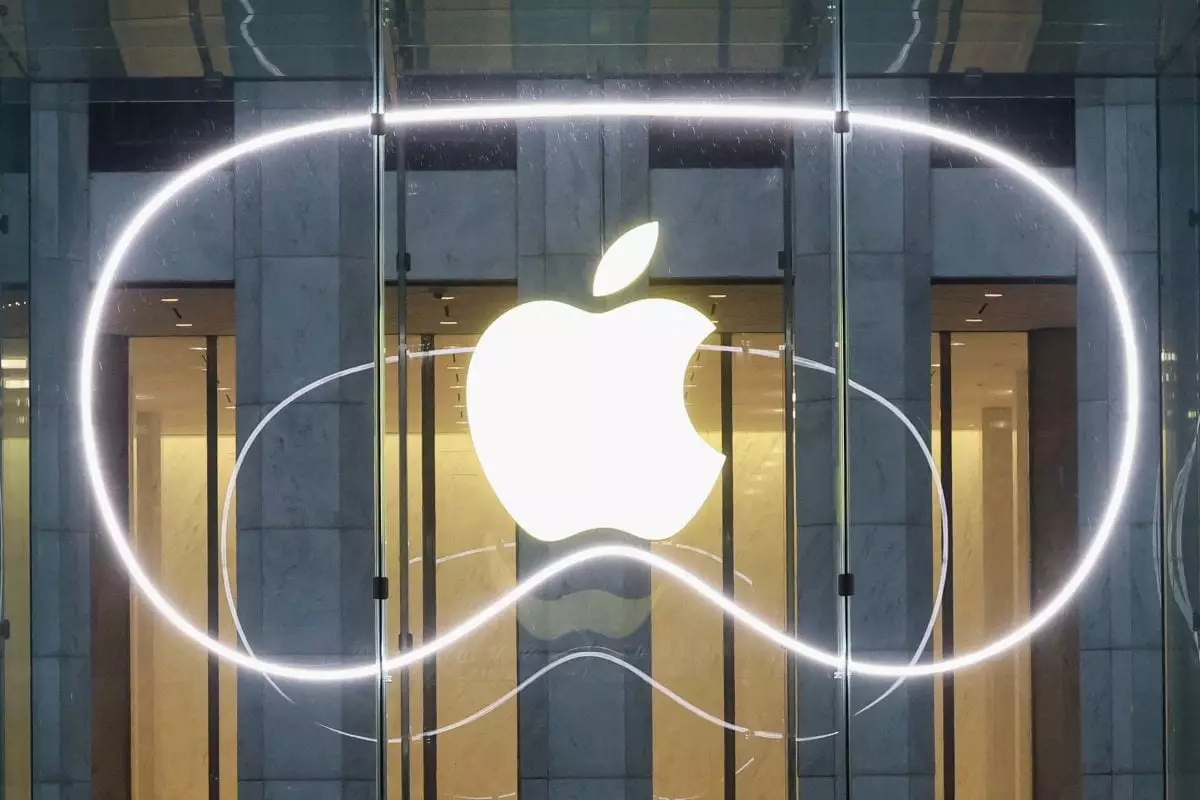Recent accusations levied against Apple by the U.S. National Labor Relations Board (NLRB) have sparked significant discourse surrounding labor rights within large corporations. The NLRB’s complaint, which claims that Apple has been infringing upon workers’ rights to organize for better working conditions, brings to light the complex interplay between corporate governance and employee advocacy. Central to the accusations are claims that Apple has restricted the use of workplace messaging platforms and social media, raising critical questions about the boundaries of employer control and employee rights in the context of modern labor relations.
The complaints issued against Apple are not isolated incidents; they signal a wider trend of scrutiny toward large tech companies concerning their treatment of workers. According to the NLRB, which issued its complaint on Thursday, Apple allegedly maintained unlawful work rules restricting employees from using Slack—a messaging application widely adopted during the pandemic—to discuss workplace conditions. Accusations also include illegal termination of employees who spoke out for change, and the enforcement of social media policies that seemingly foster a culture of surveillance among workers.
Notably, this latest complaint against Apple follows another filed just a week prior, which similarly critiqued the company’s confidentiality agreements and social media policies as overly broad. The accumulation of such complaints raises eyebrows about Apple’s commitment to fostering an equitable and open workplace environment.
At the heart of the NLRB complaint is a case involving Janneke Parrish, who was purportedly fired in 2021 after becoming a prominent figure in employee activism at Apple. Parrish utilized both Slack and social media to champion various causes, including remote work advocacy, pay equity surveys, and allegations of discrimination within Apple’s ranks. Her situation serves as a focal point for understanding the implications of allegedly restrictive corporate policies and their potential chilling effect on employee activism.
The complaint specifically cites policies that bar the creation of Slack channels without managerial approval and mandates that any discussions about workplace concerns be directed to management, thus limiting open discourse among employees. Such rules, if proven unlawful, suggest a systematic approach by Apple to stifle employee voices, thereby undermining the very principles of collective bargaining and advocacy for fair working conditions.
In the wake of these accusations, Apple has publicly rejected the claims presented by the NLRB, asserting its commitment to a “positive and inclusive workplace.” The company emphasizes that it respects employees’ rights to discuss wages, hours, and their working environment. This denial of wrongdoing indicates a potential conflict between corporate policies and employee rights, which could evolve into a protracted legal battle if Apple and the NLRB fail to reach a settlement.
Should the case escalate to a hearing set for February, an administrative judge will evaluate the evidence and render a decision, which may significantly influence Apple’s labor policies moving forward. The case also highlights the NLRB’s proactive stance in holding companies accountable for alleged violations of employee rights—a trend that may reverberate across the tech industry.
The developments surrounding Apple’s labor relations practices pose significant implications not only for its employees but also for the broader workforce across the nation. As more workers advocate for their rights, companies may find themselves under increased scrutiny regarding their policies and practices. If the NLRB’s accusations are substantiated, it could catalyze a shift in how large corporations approach employee engagement and activism, potentially fostering a climate where workers feel empowered to voice their concerns without fear of reprisal.
As this case unfolds, it serves as a reminder of the crucial balance that must be struck between a company’s operational integrity and the fundamental rights of employees to advocate for better conditions. The outcome could set a vital precedent for labor relations in the tech industry and beyond, highlighting the need for policies that empower rather than silence the workforce.
In summation, the allegations against Apple underscore the importance of protecting labor rights in an evolving workplace landscape. As the investigation by the NLRB progresses, it will undoubtedly prompt introspection within Apple and potentially inspire other companies to re-evaluate their policies regarding employee engagement and activism. The outcome of this case could very well influence the landscape of workplace rights and corporate accountability for years to come. As employees increasingly unite to demand better treatment and equitable practices, it is incumbent upon firms like Apple to ensure their policies reflect a commitment to fostering an inclusive and supportive working environment.


Leave a Reply
You must be logged in to post a comment.